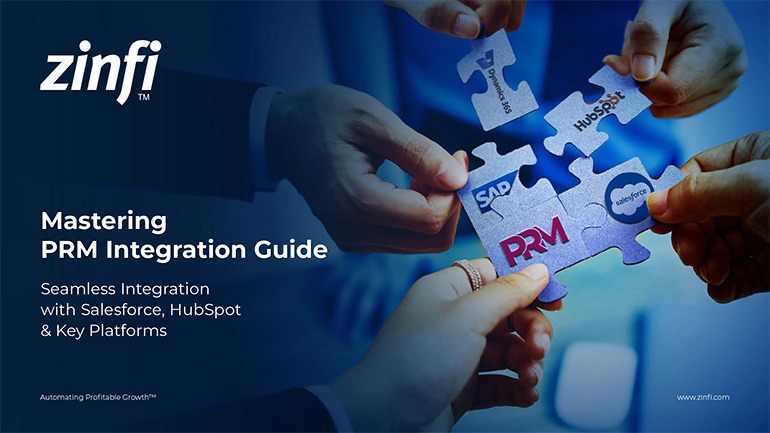Glossary - How to - Affiliate Program Automation
How to Implement Affiliate Program Automation?
Introduction
Understanding Affiliate Program Automation
Affiliate program automation refers to software tools and technologies to streamline, optimize, and manage affiliate marketing programs without requiring extensive manual effort. This process involves automating key functions such as tracking affiliate performance, processing commissions, handling relationships, and optimizing marketing campaigns. Businesses can significantly improve efficiency, reduce errors, and enhance scalability by leveraging automation.
The Role of Automation in Partner Relationship Management (PRM)
Affiliate program automation is crucial in Partner Relationship Management (PRM) by enabling organizations to manage multiple affiliate relationships. PRM solutions provide centralized dashboards, real-time reporting, and AI-driven insights that help brands optimize their affiliate marketing strategies. Automation ensures seamless onboarding, communication, and performance tracking, allowing businesses to focus on scaling their affiliate programs effectively.
Key Takeaways:
- Selecting the Right Affiliate Program Automation Software: Selecting suitable automation software is critical for streamlining affiliate management. Businesses should look for platforms offering real-time tracking, fraud detection, seamless integration with CRM systems, and automated commission processing. Solutions like ZINFI’s Unified Partner Management (UPM) platform provide comprehensive automation capabilities for managing affiliate relationships.
- Automating Affiliate Onboarding and Engagement: Efficient onboarding is key to engaging affiliates and ensuring long-term partnerships. Automated onboarding tools can simplify the process by providing pre-configured welcome kits, instructional content, and step-by-step guidance. With automated email workflows and chatbots, businesses can engage affiliates effectively, address queries, and provide training resources without manual intervention.
- Tracking and Analyzing Affiliate Performance: Automated tracking tools offer businesses real-time insights into affiliate performance metrics such as clicks, conversions, revenue generation, and ROI. AI-powered analytics help identify top-performing affiliates and optimize marketing strategies accordingly. Integrating affiliate tracking with PRM software ensures seamless performance monitoring and goal alignment.
- Automating Commission Payouts: Managing commission payouts can be time-consuming and prone to errors. Automated payment processing solutions ensure timely and accurate commission disbursement. Using digital payment gateways and blockchain technology can enhance security, reduce fraud, and improve transaction transparency.
- Leveraging AI and Machine Learning for Optimization: Artificial Intelligence (AI) and Machine Learning (ML) are crucial in automating and optimizing affiliate programs. AI-driven insights help businesses personalize marketing strategies, predict affiliate behavior, and recommend improvements based on data-driven analysis. Machine learning algorithms can detect fraudulent activities and optimize conversion rates.
Summary of Key Takeaways:
- Selecting robust automation software enhances affiliate management efficiency.
- Automated onboarding improves affiliate engagement and retention.
- Real-time tracking provides data-driven insights for optimization.
- Automated commission payouts ensure transparency and accuracy.
- AI-driven analytics enhance overall performance and prevent fraud.
Key Examples:
- Automotive Manufacturing: Automobile companies use affiliate marketing automation to drive traffic to dealership websites, track referrals, and streamline commission payouts for sales generated through affiliate links.
- Consumer Electronics: Consumer electronics brands use automation to track affiliate performance, optimize influencer partnerships, and manage product promotions seamlessly.
- Energy Production: Energy companies automate affiliate programs to encourage sustainable energy product promotions, measure conversions, and distribute incentives efficiently.
- Financial Services: Banks and financial institutions implement automated affiliate programs to track referral-driven credit card sign-ups, loan applications, and investment plans.
- Food and Beverage: Restaurants and food delivery services use automation to engage affiliates, track orders, and reward influencers promoting their services.
- Healthcare Services: Pharmaceutical and healthcare brands leverage automation to manage partnerships with medical professionals, wellness bloggers, and online health platforms.
- Information Technology: IT companies utilize AI-powered affiliate automation to optimize software sales, SaaS subscriptions, and digital product referrals.
- Pharmaceutical Development: Pharmaceutical firms use automation to track medical research referrals, monitor compliance, and manage healthcare affiliate partnerships.
- Retail Industry: E-commerce brands depend on automation tools to manage large-scale affiliate programs, track conversions, and enhance customer acquisition.
- Telecommunications: Telecom providers automate affiliate programs to track mobile plan sign-ups, broadband subscriptions, and device purchases driven by affiliate marketing.
Conclusion:
Affiliate program automation transforms affiliate partnership management, streamlining operations, improving efficiency, and maximizing revenue opportunities. Organizations can build a highly effective and scalable affiliate program by selecting the right automation tools, leveraging AI-driven insights, and ensuring seamless commission payouts. As industries evolve, automation will remain a key driver in optimizing partner relationships and achieving long-term success.
Associated Keywords:
- Affiliate Marketing Automation Software
- How to Optimize Affiliate Program
- Best Tools for Affiliate Program Automation















